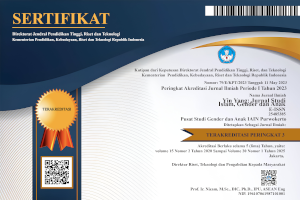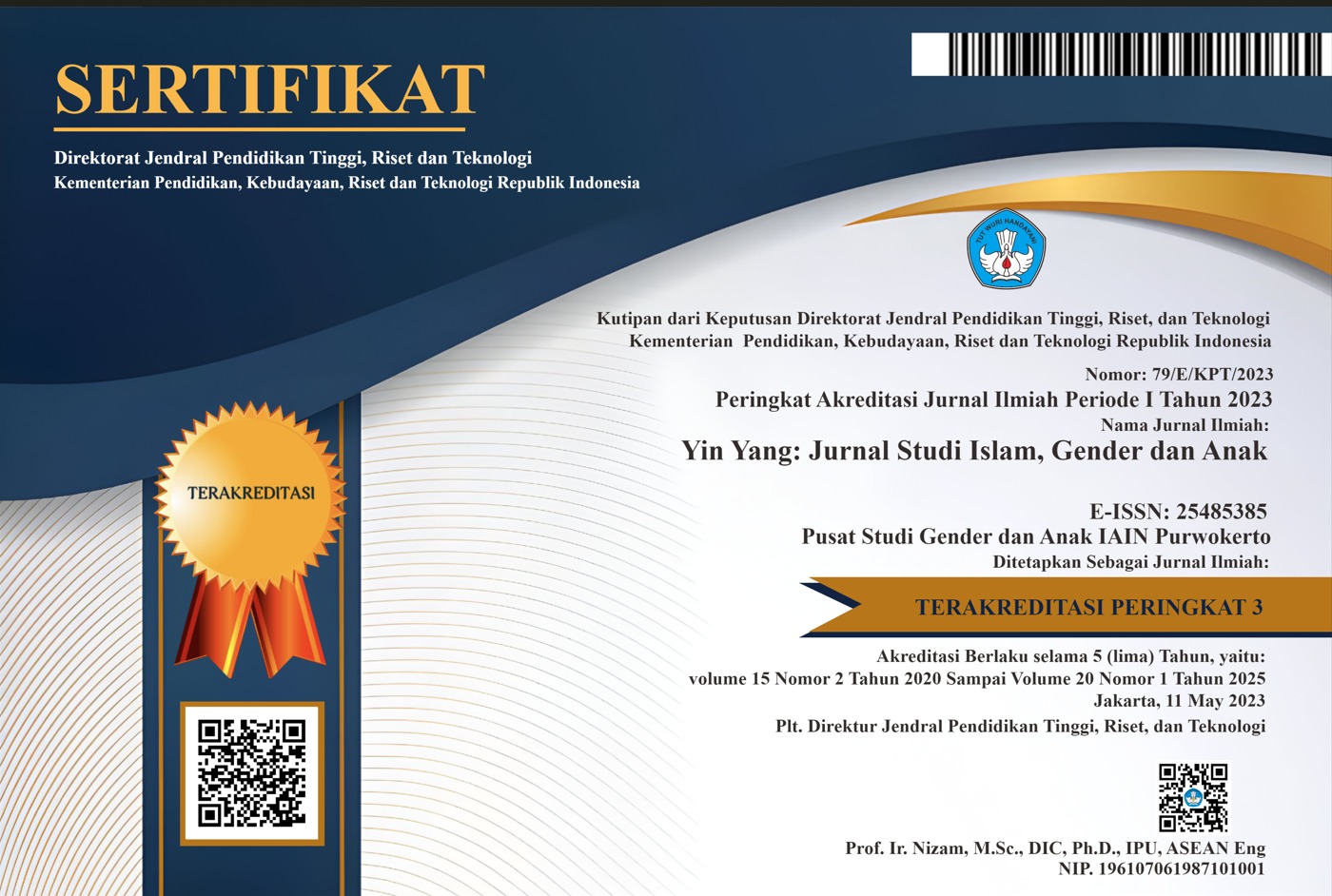POLA ASUH DAN PERSEPSI SEKOLAH ANAK BURUH MIGRAN
Abstract
Abstract: The purpose of the study, first; to organize the parenting pattern of children left behind by migrants by their parents in the village of Tanggesurus Besuki District, Tulungagung regency. Second, analyze the perception of children about school in Tanggoko Desa Besuki District Tulungagung regency. The research method used qualitative type with case study approach. Place of research in Tanggesurus Village Besuki District Tulungagung Regency. The object is the pattern of care of migrant child laborers and their perceptions of the school. The subjects are children whose parents are migrant workers (migrant mothers, migrant fathers, and migrant mothers). The data were collected through in-depth interview technique, documentation and observation. To measure the validity of the data is used inspection techniques; credibility, transferability, dependability, and confirmability. Data analysis is done in stages and interrelated between data reduction, data presentation, conclusion and verification. The findings found; First, the pattern of care of the children of migrant workers is divided into three patterns, namely; mothering, parenting, and parenting by grandparents and / or other extended families. Second, the perception of children left behind by their parents is quite diverse. For them the school is important if the father is a migrant, and vice versa if his mother is a school migrant for him is not important. There is a difference in perception between boys and boys, for boys the school does not guarantee the future, whereas for school girls it is perceived as important and ensures the future. Such a view fits with the use of his spare time, most of his spare time (other than school) they spend with his peers and play around in the coffee shop. The condition of the house, the social environment of the community, and peers affect the orientation of being a migrant worker as well. According to them the factors that shape perceptions, attitudes and behavior are peers and the social environment of local communities. Abstract: The purpose of the study, first; to organize the parenting pattern of children left behind by migrants by their parents in the village of Tanggesurus Besuki District, Tulungagung regency. Second, analyze the perception of children about school in Tanggoko Desa Besuki District Tulungagung regency. The research method used qualitative type with case study approach. Place of research in Tanggesurus Village Besuki District Tulungagung Regency. The object is the pattern of care of migrant child laborers and their perceptions of the school. The subjects are children whose parents are migrant workers (migrant mothers, migrant fathers, and migrant mothers). The data were collected through in-depth interview technique, documentation and observation. To measure the validity of the data is used inspection techniques; credibility, transferability, dependability, and confirmability. Data analysis is done in stages and interrelated between data reduction, data presentation, conclusion and verification. The findings found; First, the pattern of care of the children of migrant workers is divided into three patterns, namely; mothering, parenting, and parenting by grandparents and / or other extended families. Second, the perception of children left behind by their parents is quite diverse. For them the school is important if the father is a migrant, and vice versa if his mother is a school migrant for him is not important. There is a difference in perception between boys and boys, for boys the school does not guarantee the future, whereas for school girls it is perceived as important and ensures the future. Such a view fits with the use of his spare time, most of his spare time (other than school) they spend with his peers and play around in the coffee shop. The condition of the house, the social environment of the community, and peers affect the orientation of being a migrant worker as well. According to them the factors that shape perceptions, attitudes and behavior are peers and the social environment of local communities.Downloads
Download data is not yet available.
Downloads
Published
2017-06-23
How to Cite
Kholis, N. (2017). POLA ASUH DAN PERSEPSI SEKOLAH ANAK BURUH MIGRAN. Yinyang: Jurnal Studi Islam Gender Dan Anak, 12(1), 35–56. Retrieved from https://ejournal.uinsaizu.ac.id/index.php/yinyang/article/view/1131
Issue
Section
Articles
License
Authors who publish with this journal agree to the following terms: Authors retain copyright and grant the journal right of first publication with the work simultaneously licensed under a Creative Commons Attribution-ShareAlike 4.0 International License that allows others to share the work with an acknowledgment of the work's authorship and initial publication in this journal.

















